Uncategorized
-
 Environment
EnvironmentMicroplastics may enter freshwater and soil via compost
Compost is pinpointed as a source of plastic pollution, but environmental fate and effects unknown.
-
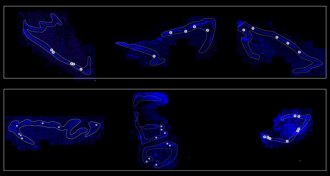 Neuroscience
NeuroscienceHuman brains make new nerve cells — and lots of them — well into old age
In humans, new neurons are still born in old brains, new research suggests.
-
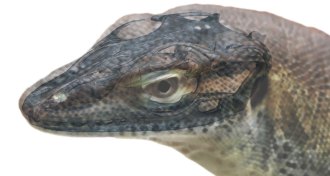 Paleontology
PaleontologyThis ancient lizard may have watched the world through four eyes
A lizard that lived 50 million years ago had both a third and a fourth eye.
-
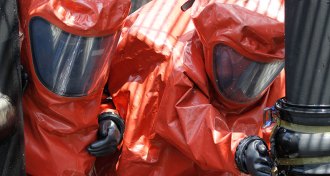 Materials Science
Materials ScienceToxic chemicals turn a new material from porous to protective
A new material switches from a comfortable, breathable form to a sealed-up, protective state when exposed to dangerous chemicals.
-
 Science & Society
Science & SocietyHow many scientists do you know in real life?
Editor in Chief Nancy Shute ponders about memorable scientists and how we can make it easier for people to connect to their work.
By Nancy Shute -
 Paleontology
PaleontologyReaders debate dinosaur designation and more
Readers had questions about the dino family tree and Venus' habitability.
-
 Animals
AnimalsFlying insects tell tales of long-distance migrations
Researchers are asking big questions about animal movements and pest control by tracking tiny insects in flight.
-
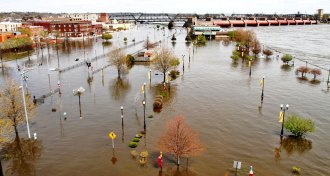 Earth
EarthEfforts to contain Mississippi floods may have made them worse
Intensive management of the Mississippi River has increased the size of its largest floods, suggests a new study.
-
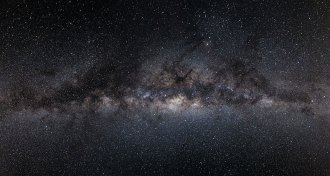 Astronomy
AstronomyA dozen new black holes found in Milky Way’s center
Twelve small black holes spotted in the Milky Way’s center suggest thousands more in the galaxy’s inner region.
-
 Health & Medicine
Health & MedicineAre we ready for the deadly heat waves of the future?
As heat waves become more common, cities try to respond.
-
 Climate
ClimateSeafloor map shows why Greenland’s glaciers melt at different rates
A new high-res look at the seafloor shows how ledges and dips affects whether relatively warm ocean water reaches the ice.
-
 Physics
PhysicsHow physicists will remember Stephen Hawking
Researchers reflect on Stephen Hawking's contributions to the field and the cosmological puzzles he left behind.